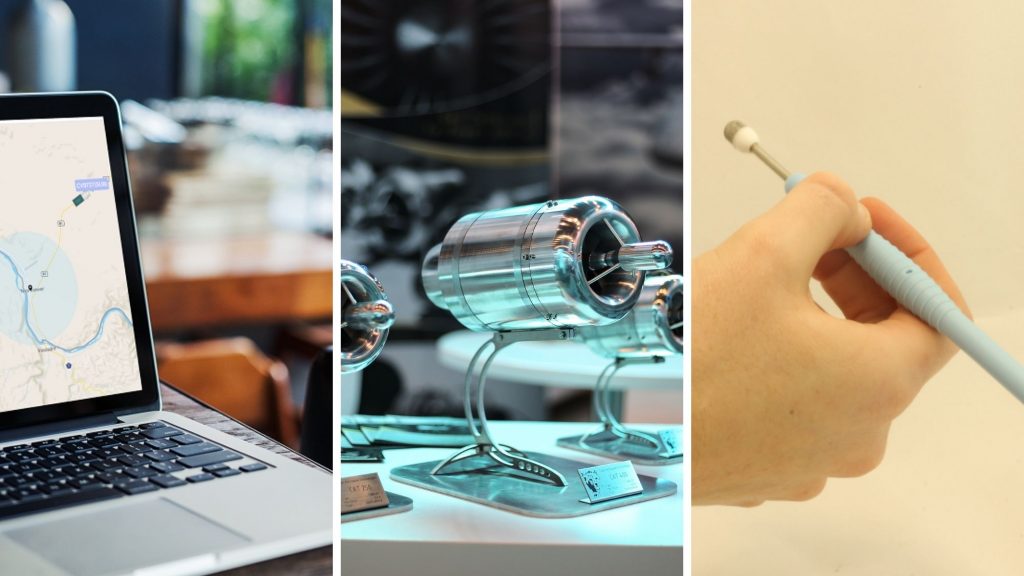In a move that signals a major leap forward in generative AI, OpenAI has quietly rolled out ChatGPT-5, its most advanced model to date….
DISF invites ‘cutting-edge tech’ to apply for 800k grants

Applications are now open for the Design Innovation Seed Fund (DISF) – designers, inventors, entrepreneurs and product developers with pre-revenue innovations can apply for grant funding of up to R800 000.
The DISF is a project of the Craft and Design Institute (CDI) with investment funds provided by the Technology Innovation Agency (TIA) and support from the Western Cape department of economic development and tourism (DEDAT). The DISF is managed by CDI Capital, which was incorporated as a CDI subsidiary in 2016 to catalyse funding for SMEs.
Since its launch in 2014, the DISF has disbursed R15,8 million in grant funding from TIA, with 26 projects completed. The portfolio has generated R139 million in further investment for participating businesses, R71m in revenue and has to date created 256 jobs.
The DISF funds designers, inventors, entrepreneurs and product developers with pre-revenue innovative technologies and tech-enabled ideas and products. These individuals and businesses are not able to raise funds easily from traditional banks or funding agencies because of the high risk associated with early-stage innovation.
The seed funding assists recipients to understand their opportunities by designing and building prototypes; and validating their assumptions around the technical and market-related challenges.
Applications that support innovative products and the creation of protectable intellectual property are welcome from a wide range of sectors including agritech; biotechnology and health; construction; advanced manufacturing technology; low-carbon technology; renewable energy; information, communication technology; and software engineering (data analytics, machine learning, artificial intelligence, etc.).
“Ask any innovator what holds them back from developing their new products and growing their business – and they will tell you: the resources that give them the freedom to take the next steps. This is exactly what the DISF provides – seeding an innovator’s next phase and launching them on a path towards commercialisation.
“Very few of the fantastic South African inventions supported over the last eight years by the DISF would have seen the light of day were it not for a fund like this,” says Erica Elk, group chief executive at the CDI.
“We have put a significant amount of work into the grant offering, not only ensuring good governance and appropriate monitoring and evaluation measures, but realising real and sustainable impact with the businesses we support.”
DISF funding snapshot
“CDI Capital enabled us to use what we had learnt in the past, to put a small team together, and do a lot of R&D and prototyping on what works and what does not,” said David Krige of Cape Aerospace Technologies (CAT), which provides the micro and small gas turbine industries with various propulsion system solutions.
“The funding has enabled us to build our first complete system, to have the first round of cadaver trials in the lab and receive good feedback. We are now in the second phase of design revision and are making minor refinements. Ryan Rode, CDI Capital’s manager, has always been extremely helpful in assisting us to meet TIA requirements,” says Heidi Wilson of BioMedical Engineering Consulting (BMEC Technologies).
The company develops Fusion, a more cost-effective perfusion system, more suitable to the African market. The system also offers numerous potential benefits to the patient population of South Africa by improving surgical training and accelerating medical device clinical trials.
“It enabled us to offer a product concept, build it in prototype form, and do some customer development and field work,” says Justin Coetzee of Go Metro, which uses data generated by GoMetro’s commuter app for location and movement, and mapping transport networks. GoMetro now generates R60 million annual revenue, with 87 people on its payroll.
“The funding enabled considerable progress in the evolution of our (Lamprey Suction Dissector) product. They made possible the full development of the product, including the manufacture of injection moulded parts and printing initial samples, as well as performance testing, validation and verification,” says Debbie Lee van den Broek of Disa Medinotec, which is developing a new type of suction dissector device for blunt dissection of soft tissue that provides an advantage over competitor devices.
“DISF support and funding enabled us to invest time and resources into building a brand new product that landed up transforming our business, changing us from a professional services company to a product company and unlocking multiple revenue streams and making us attractive to outside investors,” says Guy Stern of Legal Connection. Legal Connection has built a matter management platform on which legal work can take place.
“The DISF funding was essential to landing our private seed funding round and later our Series A. Without DISF, SwiftVEE would not have been where we are today,” says Russel Luck of SwiftVEE, which developed the largest independent online livestock trading platform in South Africa.
ALSO READ: Algorithms for social good: tech enables future of mobility

